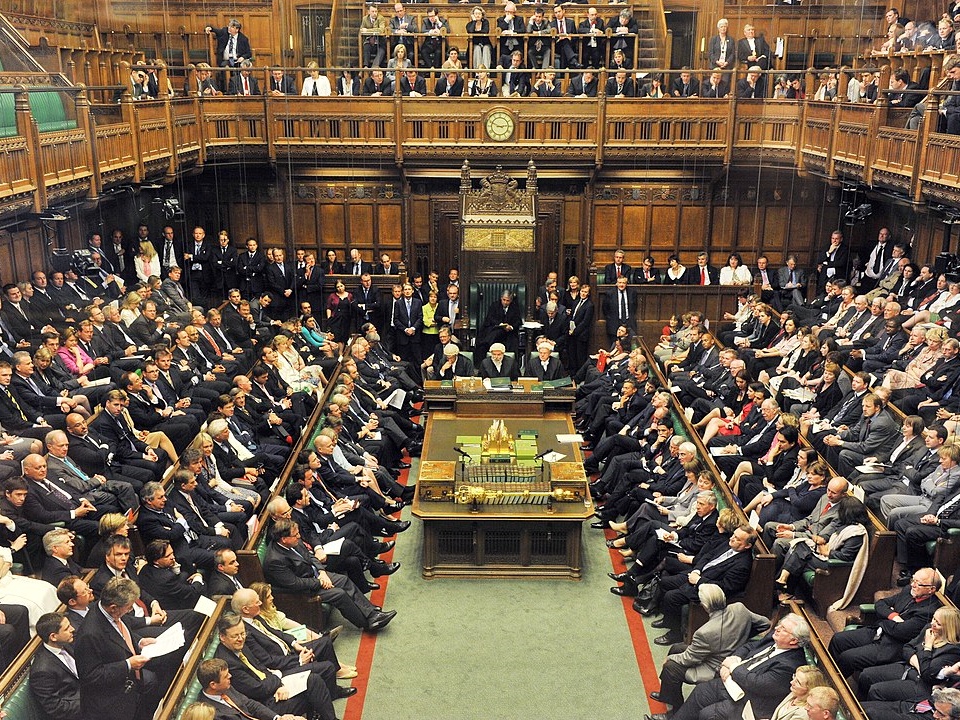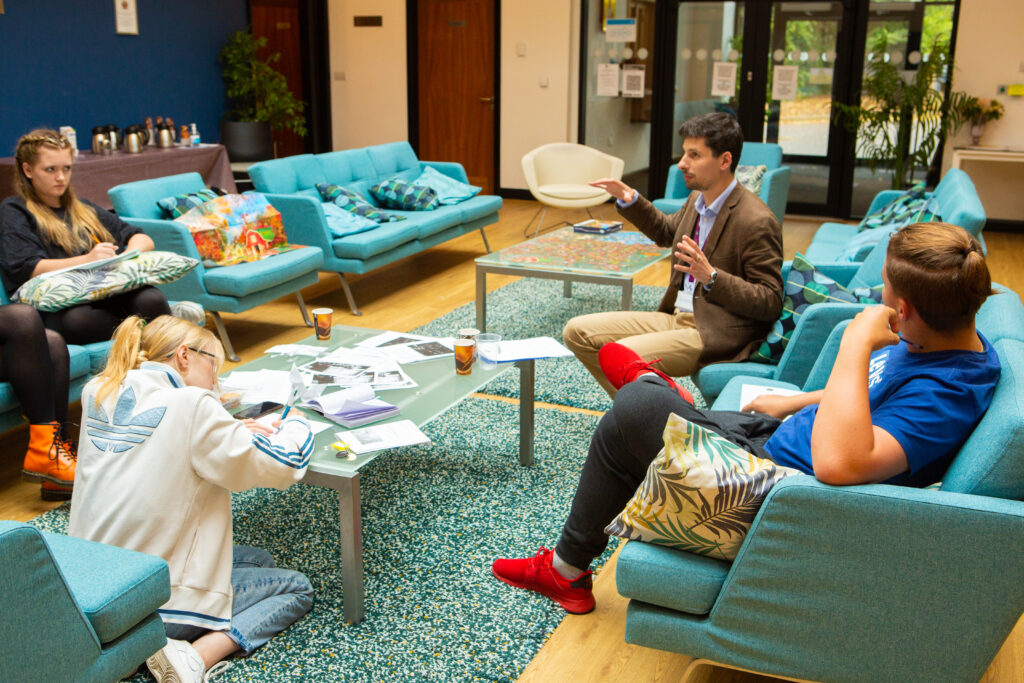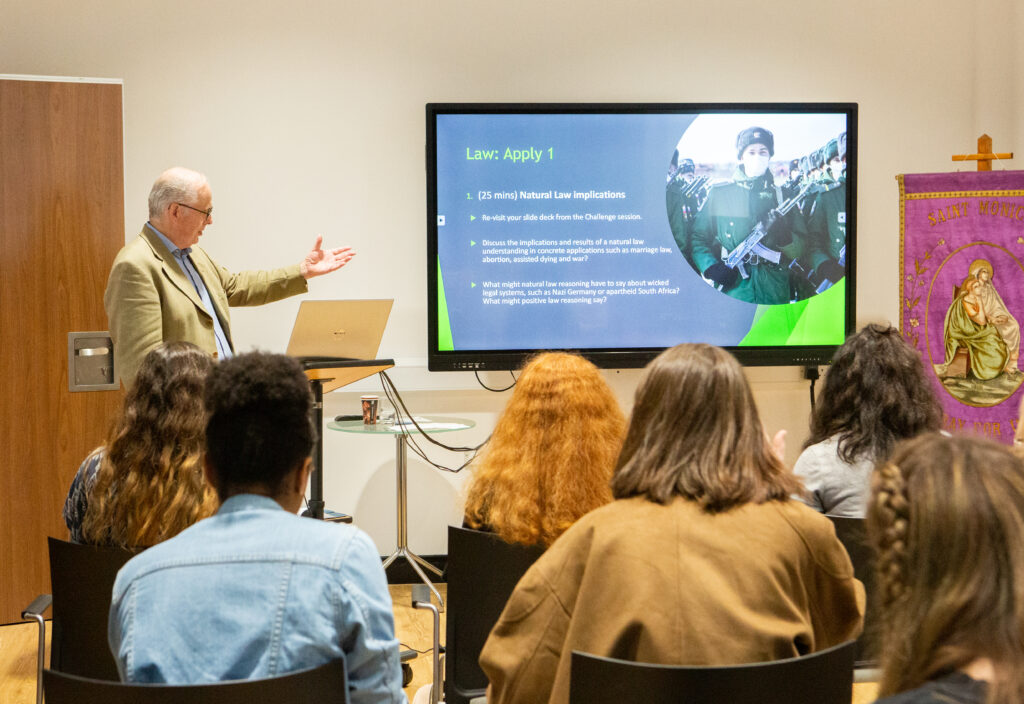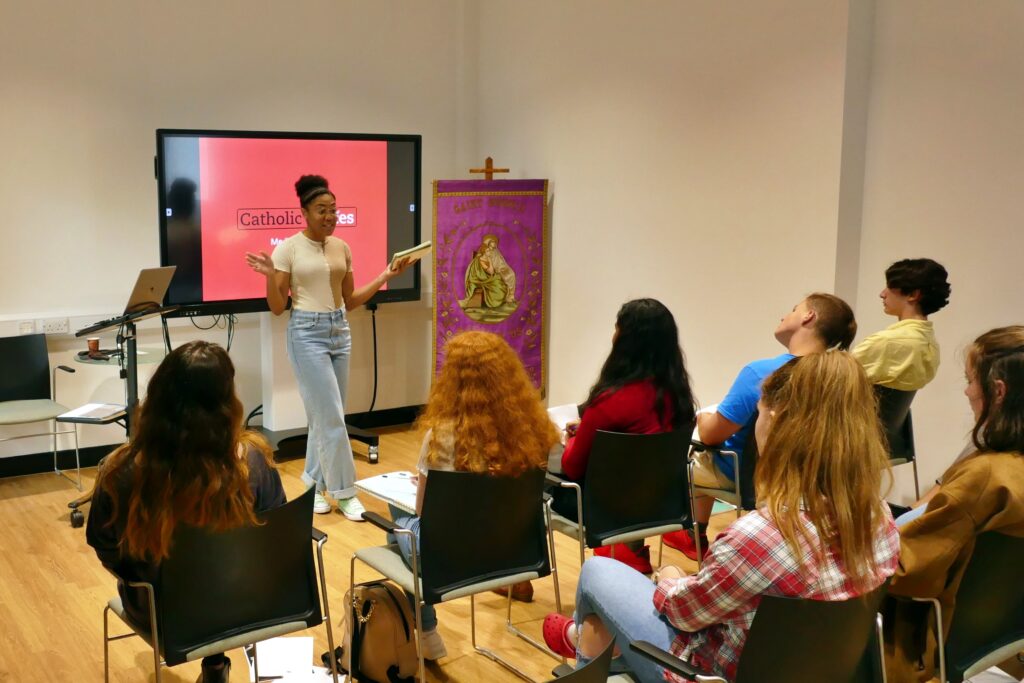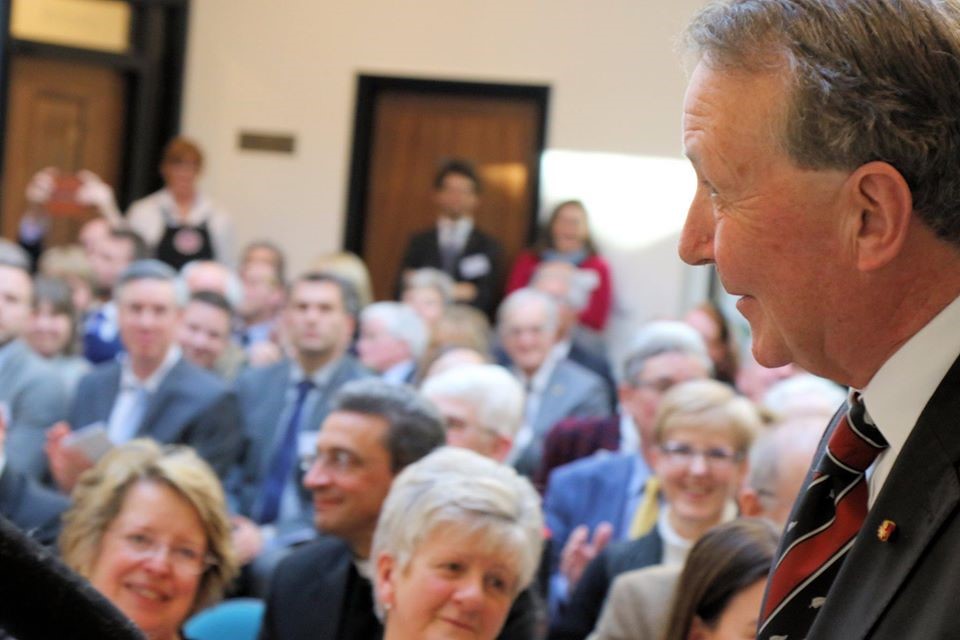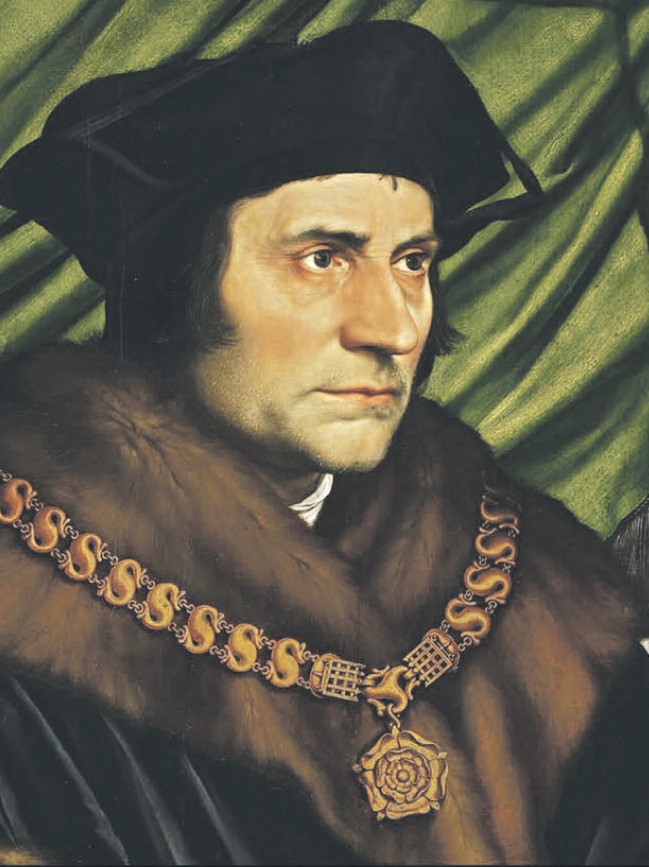Sunday 7th November 2021
Today's youth, tomorrow's leaders
Stefan Kaminski
Director Stefan Kaminski assesses the inaugural Christian Leadership Formation programme at the Christian Heritage Centre at Stonyhurst
After more than two years of planning and unavoidable delay, I was delighted to see our exciting, brand-new programme for lower sixth form students finally hit the ground last July. On a lovely summer’s day, we welcomed 14 enthusiastic 17-year-olds to our facility, Theodore House, on the Stonyhurst College campus. The young people threw themselves into a first five days of intense prayer, study, discussion and activity, rapidly and naturally coalescing as a group, and responding to the input offered by our team with willingness and openness. At the end of the first module, not only were both students and staff truly sorry to say their goodbyes, but the students were that much more equipped to play their part in a world where moral and ethical lines may appear unclear. “I was guided into a depth of theology and philosophy which I, as a scientist, never knew I would enter,” said Klaudiusz Ozog, a student at Thomas More Catholic School, Purley.
Lord Alton’s vision for future leaders
The Christian Leadership Formation programme was conceived of by Lord Alton of Liverpool, who recognised the need for a greater preparation of future leaders, given the increasingly complex ethical challenges they face in decisionmaking. He entrusted this task to the Christian Heritage Centre charity upon founding it in 2012. Ever since commencing public operations in 2019, we have worked to develop a unique, top-quality, Christ-orientated programme to do justice to Lord Alton’s intention. In opening to a first round of applications last January, we looked for candidates who are motivated by their faith and wish to be fully furnished for the ethical challenges of today’s world. By doing so, we hope the programme will help shape and create a society founded on Christian values. The feedback from the course thus far is certainly encouraging in this respect: “It is rare to find a course that helps form you into a Christian professional and especially one that explains everything so well,” wrote one student after the course. In planning this programme, we wished to offer input from prominent and leading experts in the relevant fields. We were therefore delighted to find support for the programme from St Mary’s University, Twickenham, the Catholic Union of Great Britain, Alliance Defending Freedom and Catholic Voices, besides other organisations and independent academics.
To last July’s module, the first in the programme, I gave the title “Philosophical Foundations for the Common Good”. This reflects the three themes that were studied: human dignity, human rights and civil law. The aim was for the students to understand how each of these concepts is grounded in reasoned-out principles, which rely on certain truths established on the basis of human experience and understanding. Dr Andrew Beards, an experienced lecturer and former professor at the Maryvale Institute, led the students through a challenging, yet accessible, university-style set of lectures, examining one of the themes on each of the course’s three full days. The carefully constructed group tasks at the beginning of each day offered the students the opportunity to begin to think through critical questions in each theme for themselves. Following the lectures, further group tasks at the end of the day gave the students the opportunity to apply their learning to concrete scenarios or case studies.
“Offering training in basic principles around public speaking and in engaging with the media, the students thoroughly appreciated the opportunity to put their thinking to a practical test”
As a staff, we observed and supported these sessions and were often as fascinated as the students to see how wideranging and thought-provoking the discussion became. Even the professional photographer forgot his camera at one point and sat down with the group he had
been shooting (and listening to). “I have enriched my understanding of the Christian vision of the human person, and am now able to wholly elaborate upon this rationally,” said Eva Mcmonigle, a student from St Robert of Newminster Catholic Sixth Form College, Washington, Tyne and Wear. “The educational aspect of the course highlighted that we have been provided with our world (by God) to allow us equal opportunities to flourish.”
A synthesis of mind and heart
The vision behind the programme rests on the basic principle that faith in Christ is an integral and lived-out part of daily life. Most students were unaccustomed to a daily rhythm of Mass, Morning Prayer, Night Prayer and adoration, but having returned home, the effect of this has been clear. “The times for worship during the course were extremely valuable, as I feel I would not have been provided with such a good opportunity for personal growth elsewhere – within my own mind and with Christ,” Eve said. The course’s chaplain, the “wonderful” Fr Dancho Azagra (chaplain of Netherhall House), provided a constant, fatherly and guiding presence throughout, focusing on different aspects of the Mass on each day and teaching them to build up a personal relationship with Christ.
By structuring the course content within this pattern of prayer, we helped the students to understand that mind and heart work in synchrony, feeding each other. This was validated by a comment from one of the students, who said that the experience “has made me realise that my professional and spiritual lives are synonymous and not separate”. Lord David Alton amply gave witness to this critical relationship in his keynote speech, which formally opened the course after an initial round of ice-breakers. His enlightening talk bore witness to his own lived-out faith, and also highlighted some of the key issues faced by Catholics and Christians in the UK political sphere.
Besides the fundamental importance of our relationship with Christ, Lord Alton stressed the need to build good relationships with others, especially potential “allies”. And this was indeed another of the objectives of the course. Aside from the strong sense of community that the full timetable engendered, the students enjoyed various team-building activities that challenged them to cooperate and communicate ever more effectively. From the problem based bridge-building activity that followed the opening talk to the escape room challenge at the end of the course, via slightly more unusual challenges (for example, making an aesthetically-pleasing fruit salad while tied together by the hands in a circle), much laughter and hilarity accompanied the competition between the groups to top the chart at the end of the week (although they did not witness the amusement I derived in later judging the result of their efforts in the “blind drawing” challenge!). A constant refrain in the students’ feedback was the strength and encouragement drawn from the experiences shared with like-minded students, with one young lady noting that “the experience of living together in such a close group was an unexpected joy for an introvert such as myself.”
Speaking out
The academic dimension of the course found a creative outlet in the set of sessions provided by Catholic Voices. Offering training in basic principles around public speaking and in engaging with the media, the students appreciated the opportunity to put their thinking to a practical test. CV’s Georgia Clarke built on the students’ natural, intellectual confidence, preparing them for a finale comprising of mock interviews on hot-button ethical issues with two experienced journalists. The results were described as “frighteningly good” by the journalists, both of whom have established careers with national broadcasters. Despite an element of nervousness, the students all appreciated this “golden opportunity”, as one described it.
Such confidence-boosting opportunities were particularly relished given the increasingly secular and ideological society of today, which inevitably exerts its influence regardless of our young people’s commitment to their faith. The course’s core objective was to help the students rationally consider the origins and structure of human dignity and rights, to understand where morality comes from and to be able to evaluate both different approaches to legislation in general and specific laws in particular.
As a staff, we all witnessed many instances of a gradual transformation or shift in perspective, as the students were led through a philosophically consistent and theologically enlightened elaboration of these matters. Often for the first time, they began to appreciate not only that what the Catholic tradition elaborates on these issues is rationally grounded, but also that the Church has historically led the way in doing so, precisely because it is only Christ that “fully reveals man to himself” (Pope St John Paul II, Redemptor hominis).
Looking forward
At the end of the week, the expressions of true delight and tears of joy left us in no doubt that the first module of the programme had been a success. Comments such as “absolutely brilliant course”, “broadened my understanding vastly”, and “probably the best thing I have done all year” confirmed the value of our efforts.
After those five days, it was clear to all of us that what we have provided is unique and hugely important, not simply for those students who might be orientated to more explicit, leadership roles in society, but to any student that wishes to comprehend their Christian faith properly in the first place and to apply this to the society in which they live.
We are now looking forward to welcoming this first cohort of participants to the remaining two modules in November and April, as well as to recruiting a second cohort for 2022 in the New Year.
Finally, I would like to extend our thanks, on behalf of the charity and also of the students, to those organisations and individuals that have made participation in the programme possible for the first cohort through their financial support.

